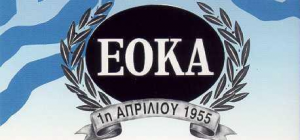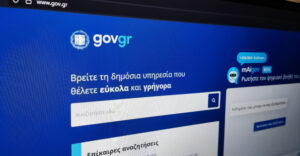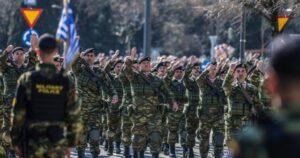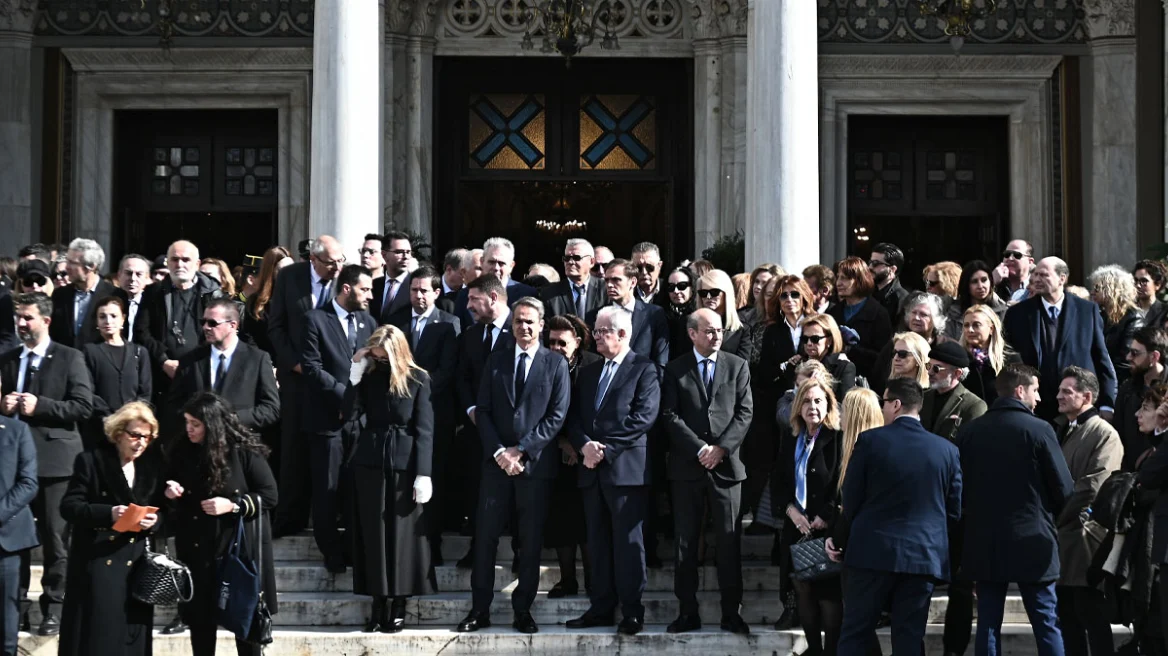The struggle of the Greek-Cypriots to repel the British yoke in Cyprus has been painted with blood and many sacrifices and heroism in the fight for “the dream”, which was the union with Greece.
On the front line of this armed struggle was EOKA, the “National Organization of Cypriot Fighters” next to which almost every Cypriot fought; men, women, teenagers, elder people, priests, public servants, etc.
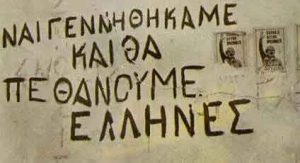
(The writing on the wall: “Yes, we were born & we will die Greeks”)
On April 1, 1955, Greek-Cypriots rose to shake off the British yoke, aiming at the union with motherland Greece. Their struggle ended with the “London-Zurich Agreements” (19 February 1959), with which Cyprus was declared an independent state.
The request of the Greek-Cypriots to overthrow the British occupation in the Cyprus and the union with Greece came dynamically to the fore in 1950, with the referendum of 15 January (organized by the Church of Cyprus where 95,7% of the all voters advocated union with Greece) and the election of Makarios III as Archbishop of Cyprus on October 20th. It was at the time when colonialism was collapsing and one after another the conquered countries were vigorously seeking their independence.
The governments of Athens, at the instigation of the Greek-Cypriot leadership and under the pressure of the Cypriot struggle organizations in Athens, made efforts to internationalize the issue with successive appeals to the UN.
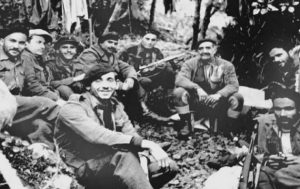
(Some of EOKA’s fighters. The leader of EOKA Georgios “Digenis” Grivas is the third from the right)
On November 10, 1954, retired Colonel Georgios “Digenis” Grivas (1897-1974) arrived on the island and formed the “National Organization of Cypriot Fighters” (EOKA), which on 1 April 1955 took action for the first time against the British colonialists, signaling the beginning of the liberation struggle of Cypriots.
Grivas was born in Cyprus and served as an officer of the Greek army and during the German occupation he had founded the resistance & anti-communist “Organization X” and had taken an active part in the Civil War. The political leader of EOKA was Archbishop Makarios (1913-1977), who later on became the first president of the Republic of Cyprus.
The start of the struggle, as mentioned above, began in the evening of March 31st to April 1, 1955, with attacks on government buildings, police stations, the radio station and at a Famagusta camp in Britain.
During the struggle, in addition to the English occupiers, EOKA targeted the collaborators of the British forces, that being the Greek-Cypriots police officers, traitors and communists of the AKEL party, the Turkish-Cypriots of the “Taksim” organization who were seeking to unite Cyprus with Turkey.
Despite the blood spilled and the fighters who gave their lives (Karaolis, Dimitriou, Pallikaridis, Afxentiou, etc.), the objective of the “Union” with Greece, unfortunately, was not achieved. Under the “London-Zurich Agreements” (19 February 1959), Cyprus became an independent state on 1 October 1960.
Ask me anything
Explore related questions
